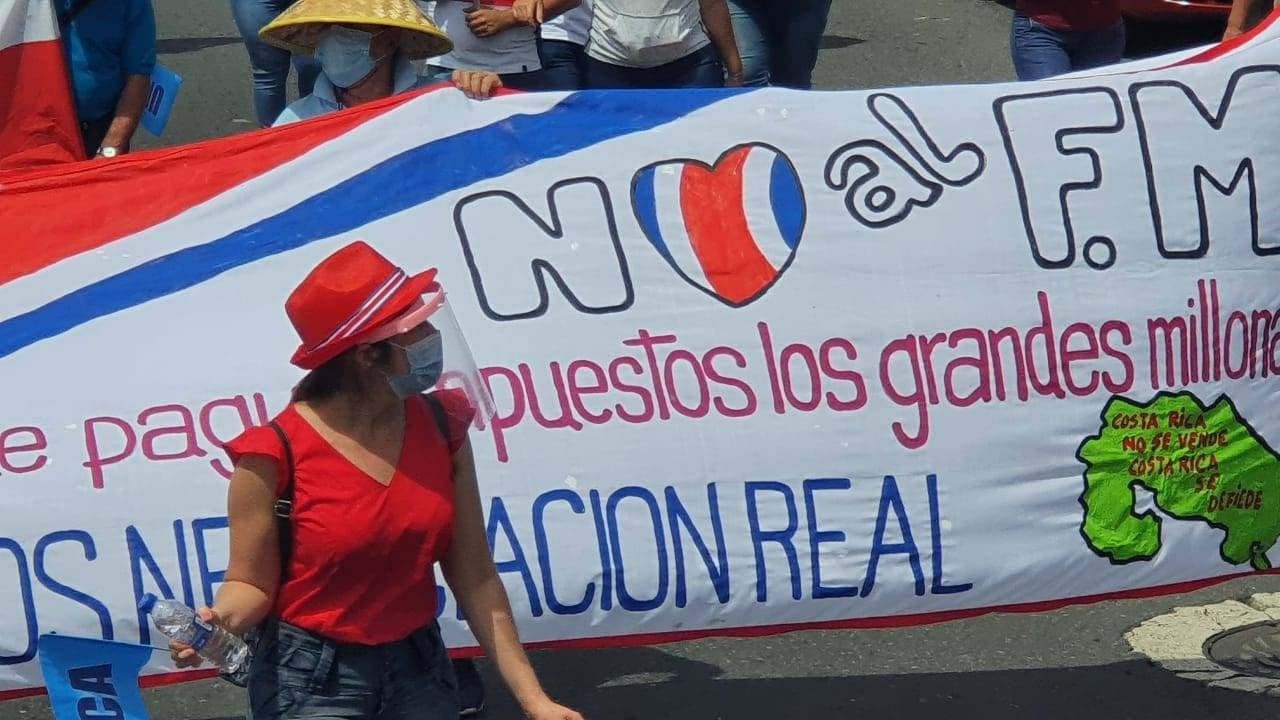RIO DE JANEIRO, BRAZIL – The Costa Rican Congress approved a controversial agreement for US$1.778 billion with the International Monetary Fund (IMF), which, according to the Government, will help to clean up state finances by exchanging expensive debt for cheaper debt; however, several political and union sectors are not convinced.
Read also: Check out our coverage on Costa Rica
Set out below are the key parts of the agreement ratified in the second and final vote by Congress on Monday night, which angers the unions and social sectors but satisfies the Government, businessmen, and international economic organizations.

SWAP OF EXPENSIVE DEBT FOR CHEAP DEBT
According to the Costa Rican Government, the loan of US$1.778 billion, to be disbursed over 3 years, will be used in 90% to pay the existing expensive debt, which will allow a saving of some US$68 million in interest. The remaining 10% will pay the Government’s debt with the state-owned Costa Rican Social Security Fund.
“The agreement with the IMF is an economic vaccine that will allow us to give financial stability to the country and boost the economic recovery in the middle of a pandemic. We are on the right path, and the international markets will know it,” said the country’s president, Carlos Alvarado, on Tuesday.
Costa Rica closed 2020 with a fiscal deficit of 8.34% of GDP, a figure aggravated by the effects of the Covid-19 pandemic, and the government debt stood at 67.5% of GDP.
SPENDING CUTS
In exchange for the loan, Costa Rica pledged to eliminate the primary deficit by 2023 and bring the debt down to 50% of GDP by 2035, which requires a series of controversial spending and revenue adjustments totaling 4.75% of GDP.
The spearhead is a bill to reform the Public Employment system, currently being studied by the Constitutional Chamber.
This project intends to create a global salary and reduce the remunerations for salary bonuses to reduce the numerous salary scales in the country’s public sector.
On the income side, the Government is promoting increases in the income tax, in the tax on luxury houses (those worth more than US$250,000), and the implementation of a global income, among other initiatives.
UNION DISCONTENT
The general secretary of the National Association of Public Employees (ANEP), Albino Vargas, has been one of the most critical of the agreement with the IMF and assured that there were “other options” to avoid going into more debt, such as, for example, strongly confronting tax evasion.
ANEP affirms that the bill will affect the lower and middle classes and violates the constitutional order and the country’s commitments before the International Labor Organization (ILO).
In the last months, there have been small protests in the streets. Still, they had not reached important levels as those seen at the end of last year when the Government made a first negotiation proposal with the IMF, which was rejected internally by political, union, and social sectors because it was imposing new taxes.
SATISFACTION OF ECONOMIC SECTORS
The approval of the agreement with the IMF has brought satisfaction to the country’s business sector.
The Costa Rican Syndicate of Chambers and Associations of the Private Business Sector (UCCAEP) stated that the approval of the agreement is “a first step to recover confidence and credibility in the international markets”.
The UCCAEP asked the Government and Congress to “decisively seek to reduce public spending”, as well as “real actions for the reactivation of production and a less complex tax scheme”.
The president of the Costa Rican Chamber of Industries, Enrique Egloff, qualified this Monday as “good news” the approval of the credit since he considers that “it will generate confidence in investors and is an important step to promote a better country risk rating”.

